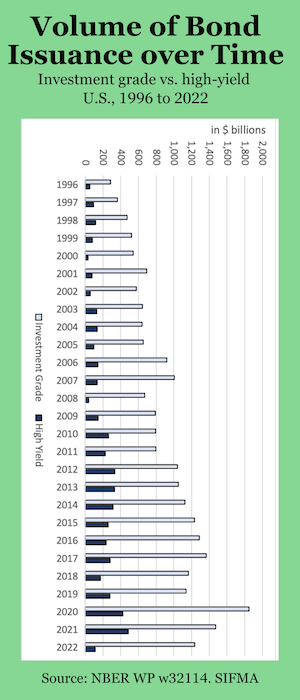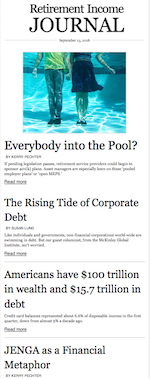Americans are “wrestling” with how to make their 401(k) savings last through retirement but are often “completely in the dark” about it, according to a recent survey of 1,000 plan participants by J.P. Morgan Asset Management.
A white paper based on the survey, Searching for Certainty, said that:
- 86% of respondents said that they will need to know how much of their pre-retirement salary they can replace, yet almost one quarter (22%) aren’t even sure what they might receive after they stop working.
- Only 40% of respondents feel “comfortable that they will be able to reach their financial goals in retirement.”
- Of those who had a target retirement income replacement level in mind, nearly 45% thought they would need less than three-fourths of their pre-retirement salary. J. P. Morgan recommends a replacement ratio of at least 70%.
- Two thirds of respondents don’t know how much they should be saving for retirement, and nearly half are scared that they will outlive their retirement savings.
- Of those who expect to need 75%-100% of their pre-retirement salary in retirement, less than a third had enough savings to generate this income.
Retirement savings ranks a distant second to paying monthly bills, the survey found, even though 401(k)s are the only or the primary source of retirement savings for two-thirds of Americans.
“Paying monthly bills, credit cards and mortgages accounts for 71% of individuals’ top priorities,” says Donn Hess, managing director, product development, J.P. Morgan Retirement Plan Services.
Employees earning $165,000 annually won’t be able to replace their salary on their 401(k) contributions alone, even if they make catch-up contributions, J.P. Morgan said.
A combination of qualified and non-qualified savings might suffice, but, according to J.P. Morgan’s research, 46% of executives with non-qualified plans do not even contribute to their primary defined contribution plan.
The study was conducted online in the U.S. by Harris Interactive from July 12 to July 23, 2010 among 1,014 respondents. All are employed in companies with at least 50 employees and have contributed to their 401(k) plans within the past 12 months.


